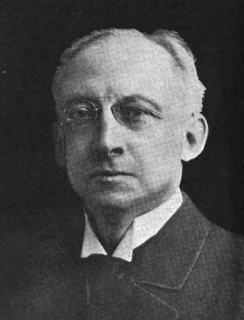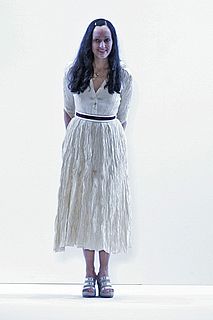A Quote by Swami Vivekananda
The fault with all religions like Christianity is that they have one set of rules for all. But Hindu religion is suited to all grades of religious aspiration and progress. It contains all the ideals in their perfect form. For example, the ideal of Shanta or blessedness is to be found in Vasishtha; that of love in Krishna; that of duty in Rama and Sita; and that of intellect in Shukadeva. Study the characters of these and of other ideal men. Adopt one which suits you best.
Quote Topics
Adopt
All Religions
Aspiration
Best
Blessedness
Characters
Christianity
Contains
Duty
Example
Fault
For Example
Form
Found
Grades
Hindu
Hindu Religion
Ideal
Ideals
Intellect
Krishna
Like
Love
Men
Other
Perfect
Progress
Rama
Religion
Religions
Religious
Rules
Set
Sita
Study
Suited
Suits
Suits You
Which
Related Quotes
Rama, the ancient idol of the heroic ages, the embodiment of truth, of morality, the ideal son, the ideal husband, and above all, the ideal king, this Rama has been presented before us by the great sage Valmiki. No language can be purer, none chaster, none more beautiful, and at the same time simpler, than the language in which the great poet has depicted the life of Rama.
Anarchism is in reality the ideal of political and social science, and also the ideal of religion. It is the ideal to which Jesus Christ looked forward. Christ founded no church, established no state, gave practically no laws, organized no government and set up no external authority, but he did seek to write on the hearts of men God's law and make them self-legislating.
It is always advisable to obtain a mantra from a self-realized master. Until then we may use one of the mantras of our beloved deity like 'Om Namah Shivaya', 'Om Namo Bhagavate Vasudevaya', 'Om Namo Narayanaya', 'Hare Rama Hare Rama, Rama Rama Hare Hare, Hare Krishna Hare Krishna, Krishna Krishna Hare Hare', 'Om Shivashaktyaikya Rupinyai Namaha' or even the names of Christ, Allah or Buddha.
Ideals are very often formed in the effort to escape from the hard task of dealing with facts, which is the function of science and art. There is no process by which to reach an ideal. There are no tests by which to verify it. It is therefore impossible to frame a proposition about an ideal which can be proved or disproved. It follows that the use of ideals is to be strictly limited to proper cases, and that the attempt to use ideals in social discussion does not deserve serious consideration.
As to the family, I have never understood how that fits in with the other ideals --or, indeed, why it should be an ideal at all. A group of closely related persons living under one roof; it is a convenience, often a necessity, sometimes a pleasure, sometimes the reverse; but who first exalted it as admirable, an almost religious ideal?
Devotion means for the total; it is never for Rama, never for Krishna. Of course, Rama and Krishna are implied in the total, but it is never for a chosen one. Love is always for the chosen one, devotion is for the whole. So you cannot be a devotee of Rama. If you are for Rama, you are only a lover; and when you are a lover, then competition is bound to be there. Then Krishna will be a competitor, and Christ will be a competitor, and the same jealousies, the same conflicts, and all the same nonsense will follow. It has followed.
True religion has a universal quality. It does not find fault with other religions. False religions will find fault with other religions; they will say that theirs is the only valid religion and their prophet is the only saviour. But a true religion will feel that all the prophets are saviours of mankind.
He who was Shri Rama, whose stream of love flowed with resistless might even to the Chandala (the outcaste); Oh, who ever was engaged in doing good to the world though superhuman by nature, whose renown there is none to equal in the three worlds, Sita's beloved, whose body of Knowledge Supreme was covered by devotion sweet in the form of Sita. (part of A Hymn To Shri Ramakrishna)
As a result of changes which, over the last century, have modified our empirically based pictures of the world and hence the moral value of many of its elements, the "human religious ideal" inclines to stress certain tendencies and to express itself in terms which seem, at first sight, no longer to coincide with the "christian religious ideal".
Fashion lives in the world of ideals; it is not necessarily grounded in the real world. The question becomes whose ideal it is. My ideal happens to be diversity. I love difference. I love change. I love experimentation and eccentricities. I like not knowing something and then discovering. Fashion can only reflect this diversity if we designers have an open and curious mind.



































